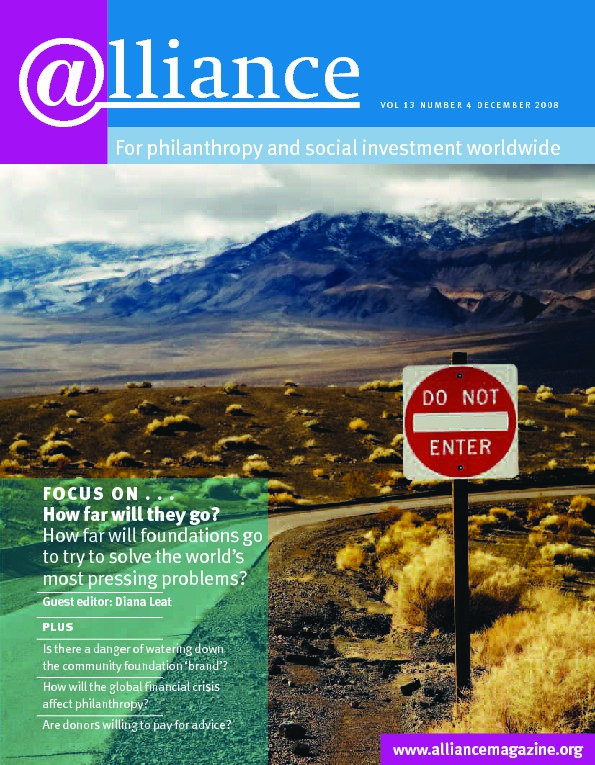In the September 2008 issue of Alliance, Matthew Bishop and Michael Edwards offer contrasting views on the subject of ‘philanthrocapitalism’. In my estimation, philanthrocapitalism as described by Bishop and Edwards is neither inherently good nor inherently evil. What is critical when considering global giving strategies is to ensure the right match between donor and project.
Some undertakings lend themselves well to a businesslike approach, including scaling up and quantifiably measured results. The growth of microfinance is a positive example. For these types of laudable programmes, there is certainly nothing wrong with using business models that can enhance their effectiveness.
Other important philanthropic activity, however, should not be evaluated through business standards alone. Intangible benefits that are complicated to measure, such as promoting human rights, are clearly vital, despite a lack of concrete benchmarks. Likewise, time-consuming research around complex issues has intrinsic value for most projects’ outcomes, but often at considerable expense.
In all philanthropy it is essential to consider first and foremost the voices of the grantee. Philanthropists, large or small, will be better positioned to respond and adjust according to the needs of the grantee. Co-benefits can be replicated (for example, water sources developed in conjunction with new school buildings) and negative unintended consequences can be addressed, to prevent creating new problems when resolving old ones.
The diversity of challenges must be met through an equally diverse set of responses. We can all learn from each other.
Adele Simmons
President, Global Philanthropy Partnership






Comments (0)